
Justin Townes Earle: “I was a kid that slid about on his knees with a tennis racket listening to AC/DC”
The country artist talks about his seventh album and how we still shouldn’t expect to hear happiness in his music
![]() anuary 2015 will see the release of country musician Justin Townes Earle’s seventh album, Absent Fathers. Coming only a few short months after his last record, Single Mothers, it can be seen as a companion album and was recorded live with his four-piece touring band during the same sessions. It’s quite an achievement for Justin to have made it this far. The son of legendary musician Steve Earle, his tumultuous history is well-documented: a troubled upbringing, substance abuse, brushes with the law, rehab and difficulties with his labels. Justin’s credibility as a country outlaw cannot be denied. However, he’s now in a much better place, having found a musical home at Loose Music and the domestic bliss of married life.
anuary 2015 will see the release of country musician Justin Townes Earle’s seventh album, Absent Fathers. Coming only a few short months after his last record, Single Mothers, it can be seen as a companion album and was recorded live with his four-piece touring band during the same sessions. It’s quite an achievement for Justin to have made it this far. The son of legendary musician Steve Earle, his tumultuous history is well-documented: a troubled upbringing, substance abuse, brushes with the law, rehab and difficulties with his labels. Justin’s credibility as a country outlaw cannot be denied. However, he’s now in a much better place, having found a musical home at Loose Music and the domestic bliss of married life.
With his troubled past seemingly behind him, is it possible that the edges which made him such an authentic talent will have been softened? Songwriting tracked him down to find out……
Where are you at the moment?
“I’m in Nashville right now, I’ve got a few shows that I’m going to do in the next few days and a little time off over the holidays but then I’m pretty much touring until the end of next year.”
What does Nashville mean to you – as a native and as a songwriter?
“Well what Nashville means to me isn’t here any more, it’s buried under a bunch of crap and trampled under the feet of a whole new population that has moved here from LA. It’s incredible what they’ve done to Lower Broadway, where all the best honky- tonks were. The other night I heard Sweet Child O’ Mine coming out of Tootsie’s [famous country venue Tootsie’s Orchid Lounge]… do you know how pissed off Tootsie would be if she knew that was happening?”
So it’s a different place to where you grew up?
“Yeah it definitely has changed. The idea of country now isn’t even remotely what I consider country. It’s strange, it really is. It’s become this place of wonder to people all over the world because of that stupid TV show. I’m a native and we aren’t like those people on that TV show.”
The notion we have of Nashville is of an almost mythical place…
“Well you can still find that stuff, it just takes a little more looking than it used to. You can still see the Ernest Tubb Record Store but you used to be able to walk across the street from there and hear some of the best honky-tonk in the world. I don’t know what people are coming here for now, they’re not coming here to carry on a tradition of country music.”
You also have people sat around desks writing songs in their offices, is that something you can relate to?
“Not at all. I’ve been offered those jobs before, they were like, ‘Do you want to make some money, you’re gonna write a song with these guys and we’ve already got it locked up to be a single for so-and-so’ and it’s like, how do you have it locked up to be a single before it’s even written? Songs that are going to last throughout the years, and that are going to mean somethin,g aren’t written by five people.
“To me writing is such a personal process. Not that the lyrics to my songs are completely personal as I do use composite characters, but the few times I’ve co-written in my life I’ve become so frustrated because I don’t want anyone else involved in my songwriting. It’s just something that I prefer to do on my own.”
Are we right in thinking that you started writing poetry and stories before you got into songwriting?
[cc_blockquote_right] I DON’T WANT ANYONE ELSE INVOLVED IN MY SONGWRITING. IT’S JUST SOMETHING THAT I PREFER TO DO ON MY OWN [/cc_blockquote_right]“I did, yeah, it’s something I started when I was very young. My upbringing always left me kind of wanting something different, so I’d write stories. Most of them are about wanting a better life, a better home. I was always a sensitive-to-my-surroundings writer and I’m back doing that. I’m sitting at my desk right now and writing out a story that I’ve been working on. If you want to be a writer, you should write all that you can in all different forms.”Do you plan to release any of them?
“Absolutely, I’ve already been talking with a literary agent. It’s definitely something I want to get into. You know how this business works: here today, gone tomorrow.”
Do you think it’s hard for a songwriter to make a living these days?
“It’s insane how difficult it is right now. I said this four years ago but now even more so, I feel very bad for anyone trying to break out. Right now, nobody is going to hand you enough money to make a record. Live shows are getting hard because festivals are killing the live show crowd. It’s a different time.”
Did you ever feel that being a songwriter was something you didn’t want to do, or have you always felt compelled to do it?
“I definitely thought in my head when I was a child there was no way I was going to be a musician, but then I was a kid that slid about on his knees with a tennis racket listening to AC/DC really loud, and I think it was there whether I wanted to acknowledge it or not. I finally started getting into songwriting when I was about 13 or 14. I was like, ‘Wow, I like this more than anything’. It was tougher, I felt: you have to fit the story into two minutes 50 seconds, and that’s a lot of constraints on what you can write.”
Your songs and albums are all quite short, is that a conscious decision?
“Yeah that’s one of the few big business decisions I’ve made. I did some research and figured out that the average commute for an American is 30 minutes, and so my records are about 30 minutes long.
“You get bored with a 90-minute-long record. People talk about the attention span of Americans, but I don’t give a shit where you are, people have absolutely bought into this fast- moving society and it’s strange.”
Let’s talk about the two albums we’re in the middle of now. Were Single Mothers and Absent Fathers recorded at the same time, and then a decision made to release them separately?
“Yeah, they were recorded in one 10-day session. We had 24 songs originally and a year ago I was talking about making a double record, but I then found out that Lucinda Williams was putting out a double record… and I’m smart enough that I would never go toe-to-toe with Lucinda Williams. And it was also that attention span thing, and would I want to sit down right now and listen to a double record? And then again how many double records have actually been good over the last 30 or 40 years? It could have been a disaster.”

Justin Townes Earle: “The characters in my songs won’t ever be happy.”
The first album seemed to be in homage to the resilience of women and the strength of the single mother in particular. Is that accurate, and what does Absent Fathers now bring to the story?
“You’re right with the first record, it is paying homage to single mothers but it is also saying that just because you have the best single mother in the world, if a mother alone raises a boy her chances of equipping that boy with what he needs to get through life are very slim. Even if you’re the best mother in the world, you have a high chance of having a child ill-suited to the world and that’s a really crazy thing.
“It’s hard for women to get into the work force, it always has been at any high level and then they get something like that thrown in front of them, another road block. I think the younger character in that record definitely couldn’t see the light at the end of the tunnel whatsoever but on the second record Absent Fathers, there’s a bit of light, you can see it but it’s a pinhole in the distance still. Nothing’s been solved, nothing’s been figured out.”
Is it hard for you to release music that sounds so personal, when everyone knows your family history? Do you ever feel like you should be more guarded?
“The only serious drawback with what I do has been with some fans. Because I do write fairly personally, there are some people out there who are like ‘You had a bad dad, I had a bad dad, we should be best friends’ or ‘I did drugs, you did drugs, we should be best friends’ and that’s kind of freaky. Don’t ever tell anybody ‘We should be best friends’! It gets kinda frightening: they just feel like they have a little more stake in the song then they would usually and that can create somewhat of an unhealthy relationship.”
Does that ever influence what you’re writing?
“No. I’m not going to let anything get in the way. I wouldn’t go, ‘I don’t want that to happen again so I’m not going to write this or do that again’, especially if it was something that worked, was successful and felt good to me.”
Right now feels like a very important time for your country. As an artist, do the events of the last few weeks affect your work at all or is it only as a citizen?
“I speak out about what I feel but I don’t get involved in political issues, I get involved with people issues and what’s been going on in the United States is a people issue. It’s got nothing to do with black and white, it’s got to do with our children. Nothing is going to change unless it changes everywhere. In the UK it’s the islanders with the Africans and the Middle Easterns (sic), Australia with the Aboriginals, South Africa’s native people, it happens everywhere. It’s just that our bullshit is way more public than anybody else’s. We don’t hear about knife crime in England, ever.”
Whereas we see Ferguson on the news every day…
“It’s because somebody of colour was shot by an Anglo person and killed, just like somebody stomping an African kid to death like the last time I was in England. We definitely have it worse here, having a lot more people makes it worse. Too many opinions, too many regions, too many preachers, too many… everything.”
[cc_blockquote_right] BY THE TIME I WAS 16 YEARS OLD I WOKE UP ONE DAY AND I COULD NOT STOP DOING HEROIN [/cc_blockquote_right]
Bringing that back to you as a writer, does that influence you and will you use that in your songwriting?
“No, I like to write my songs and do my shows to have a good time, to delve into yourself a little bit instead of into the outside world. I do speak out on Twitter and stuff but not as far as my shows go.
“My dad does what he does and he does it well, but there’s a certain part of the population, the angry more right-wing people, that will not go to his shows, because they don’t want their values ridiculed over the entirety of a show. I don’t get that because I don’t do politics, nobody screams out ‘Play a fucking song’ to me. I think it’s because I keep it simple at the live shows, and just because you’re a raging right-wing cocksucker does not mean that you can’t have a good time at one of my shows. I think that’s very important.”
You’ve mentioned AC/DC being one of your first influences as well as the more traditional country artists, I also get a sense that Nirvana might have inspired you too?
“You’re exactly right, the thing that turned me towards Woody Guthrie and Lead Belly was the Nirvana Unpluggedrecord: that was a life-changing moment for me, that’s when I started to understand that this music meant a lot more to people like Kurt Cobain than I thought, it had a lot more to do with the history of music than I thought. No generation just reinvented the wheel.”
Do you ever think of your body of work as something you hope will get passed down and is revered by generations to come?
“My only goal in what I do is to make sure that if my grandfather, who has been gone for about a decade now, can see me he’s proud of me. I do plan on having children and when I do I don’t want to give them a reason to not be proud of me. Even if I only live on in the minds of my children, that’s good enough for me.”
How has being in a happier place altered the way you write?
“There’s still plenty to fall back on. You have to remember that I’ve been fucked up way longer than I’ve been happy, I have 30 years of background to come from and two years of being happy, so that’s a big difference. And anyway, I hate happy songs so there’s no way it’s going to turn! The characters in my songs won’t ever be happy.”
There’s no temptation for you to do anything stupid just to give yourself something new to write about?
“No. I definitely did buy into the dream, the romantic idea that musicians could do whatever they want, and I could do whatever I want because the world owes me something. But by the time I was 16 years old, I woke up one day and I could not stop doing heroin, and there was nothing romantic about that. I learned right then that there was nothing romantic about this. It took me away from music and it put me on the street, that’s not romantic. Life changes and you change with it… or you die in the same place you started.”
Interview: Duncan Haskell
Single Mothers is out now, Absent Fathers is released on 12 January 2015, both on Loose Music. Justin will also be undertaking a UK and European tour in January and February. For more details, take a look at his official website: www.justintownesearle.com




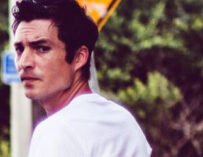

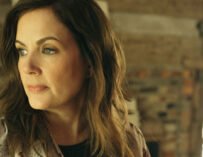
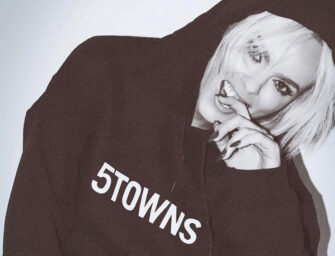
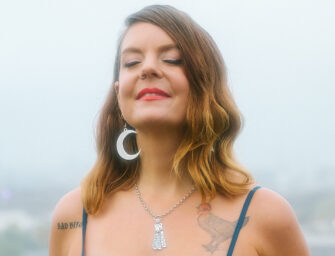
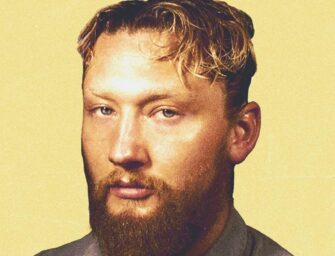
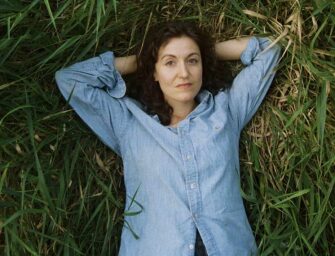






















Related Articles